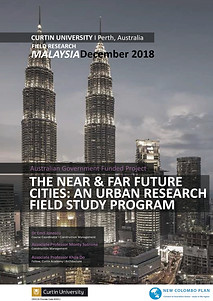This interdisciplinary Global Design Studio [GDS] project aligns with Work Integrated Learning (WIL) participation in the Mobility Program framework. This research uncovers established patterns of architecture, space and form-initiated behaviours and an understanding of how the Iban of Sarawak engages with traditional landscape, the urban environment, and each other. Accordingly, this research aims to understand the significance of degraded indigenous culture and adaptive or compensatory behavioural responses of the Iban once removed from traditional habitus. This interdisciplinary and collaborative study proposes to develop culturally inclusive architectural design strategies that enhance indigenous sense of place. Lastly, this research provides opportunities for sustainable traditional social engagement in developing contexts and economies, and urban sustainability studies of future cities and population densification frameworks.
Students will engage directly with critical historical and contemporary issues in the host location and will gain an in-depth understanding of, culture, traditions, economic trends, and participate in social and community activities.

Through increased capability of built environment professionals, this body of knowledge provides critical new and innovative mechanisms by which to consider how cities can be planned, formed, further developed, with higher density strategies that achieve culturally and socially sustainable spaces for the needs of Iban and other indigenous groups.
This research supports and encourages interdisciplinary mobility in teaching and learning between Curtin Bentley and Curtin Sarawak. This benefits not only students and researchers but the local community and globalisation education experience. Some first-hand locally derived knowledge has already benefited this proposal through Global Design Studio’s (GDS) visit to Miri in January-February 2017. The proposed pilot study proposed in this research will be further informed by GDS’ second visit to Curtin Sarawak, “SarAWAKEN on the road” in April 2017 in Kuching, Bintulu and Sibu. This second study tour, with its own deliverables, further contextualises and informs agenda frameworks relating to this proposal.
In Collaborations with
Research Experience Capture
Malaysia
January 2019
Project Leader

Dr Emil Jonescu
Defining Traditional Behaviours and Cultural Norms of the Iban of Sarawak
